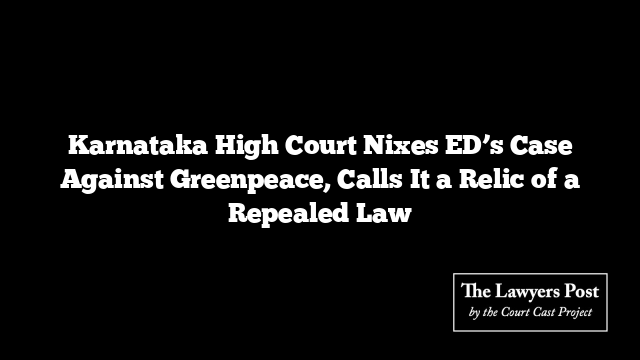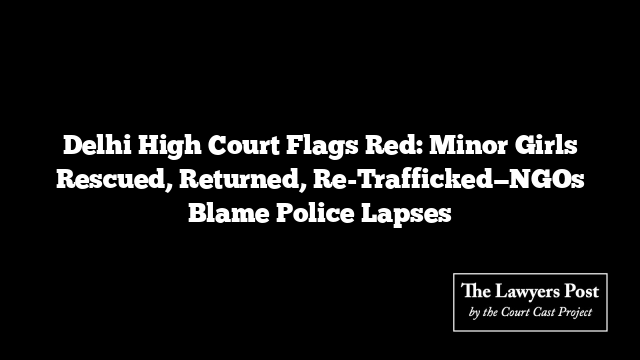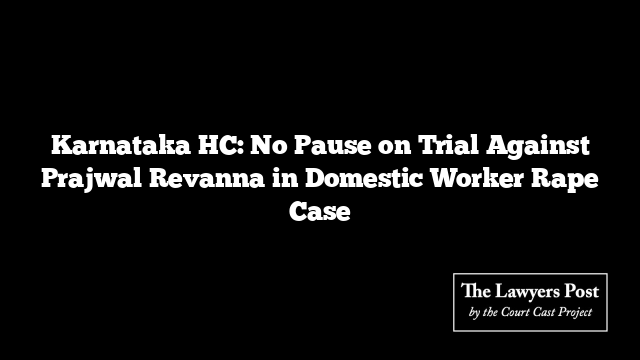In a ruling that slices through years of legal fog, the Karnataka High Court has thrown out the Enforcement Directorate’s 2019 complaint against Greenpeace Environment Trust and Greenpeace India Society, declaring the case legally lifeless from the start.
At the heart of the matter was the ED’s claim that Greenpeace had violated provisions of the Foreign Exchange Management Act (FEMA) by allegedly routing foreign funds through a partnership with Direct Dialogue Initiatives India Pvt Ltd (DDIIPL) — all after its FCRA license was cancelled.
But the High Court wasn’t buying it.
Justice Suraj Govindraj, ruling on two petitions filed by Greenpeace in 2021, not only quashed the ED’s complaint but also buried a 2020 show-cause notice along with it. The reason? The ED had relied on a section of FEMA — Section 6(3)(b) — that had already been struck from the law books before the complaint was ever filed.
That section was officially removed by the Finance Act of 2015, with the change taking effect from October 15, 2019. The ED filed its complaint ten days after that.
Greenpeace leaned on a key precedent to make its case: a December 2024 ruling by another bench of the same court, where Justice Anu Sivaraman had dismissed FEMA-related charges against former Greenpeace Executive Director Kshithija Urs for the same reason — the section they were accused of violating simply didn’t exist anymore.
Justice Govindraj agreed, noting the clear legal timeline: the law changed, and then the ED filed a complaint under the already-dead law. It wasn’t even a close call.
With that, the Court ruled, “The complaint dated 25.02.2019 filed by respondent No.3… is quashed.”
Greenpeace had long denied any wrongdoing, saying its arrangement with DDIIPL was only to connect with donors, and that donations were sent directly to Greenpeace, not funneled through any intermediaries.
The organization has weathered a barrage of government action in recent years, peaking in 2015 with the Ministry of Home Affairs cancelling its license over allegations of “anti-development activities” — a term that Greenpeace maintains was used to silence dissent against large-scale projects with environmental fallout.
The FCRA cancellation meant Greenpeace India could no longer receive foreign contributions, triggering a chain of scrutiny and enforcement — including raids and frozen bank accounts in 2018. Even that move didn’t stick. The Karnataka High Court had already clipped the ED’s wings once in 2019, ruling that the freeze order had lapsed.
With this latest verdict, Greenpeace has notched another legal win — and another chapter closes in the long-running battle between the environmental NGO and the Indian establishment.





